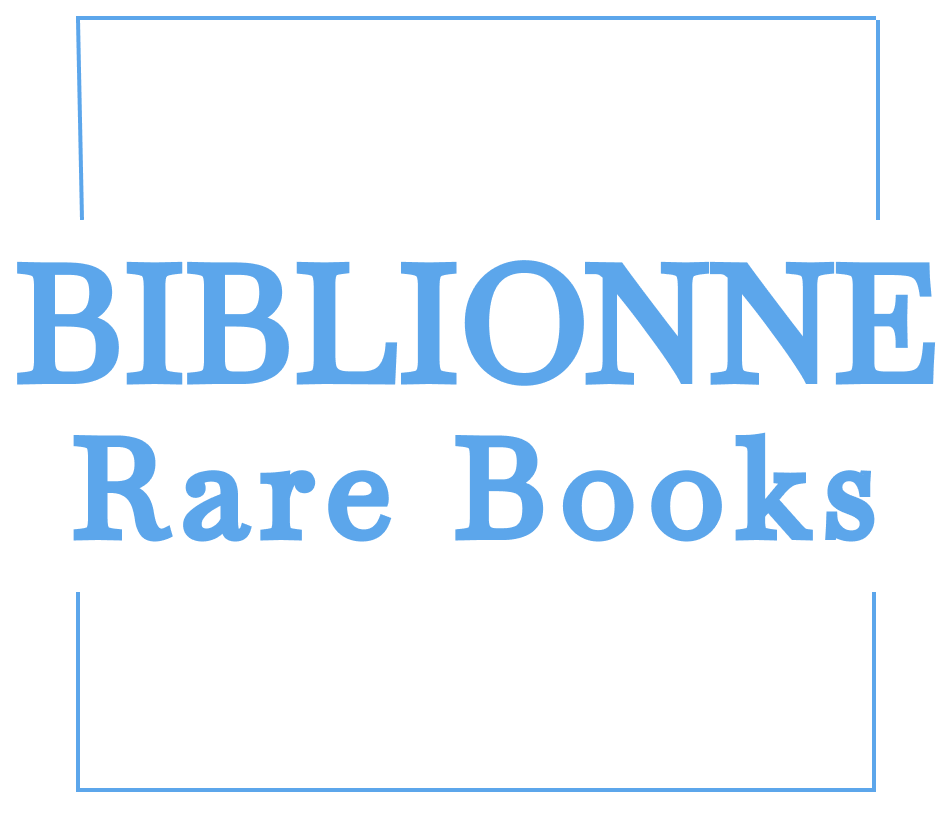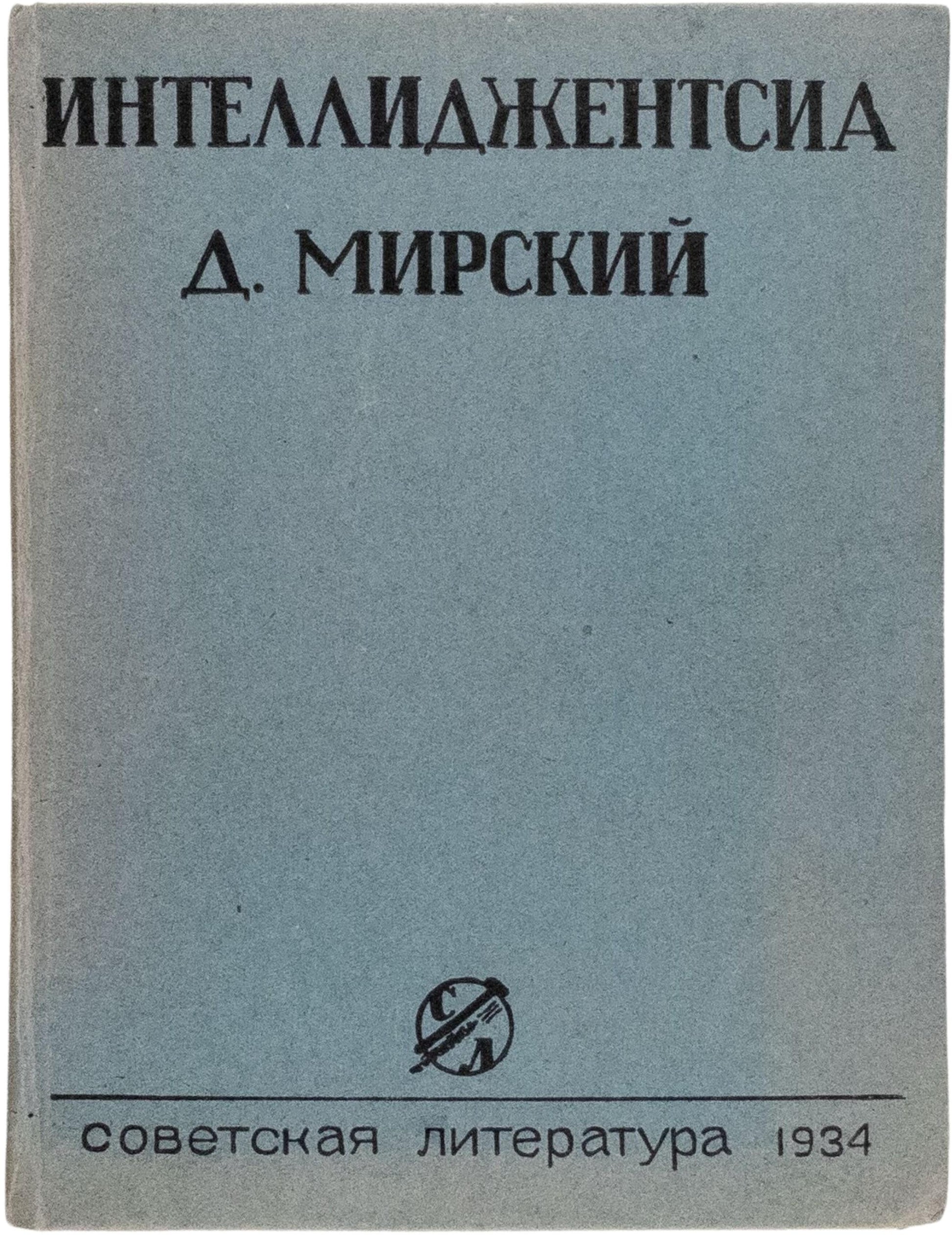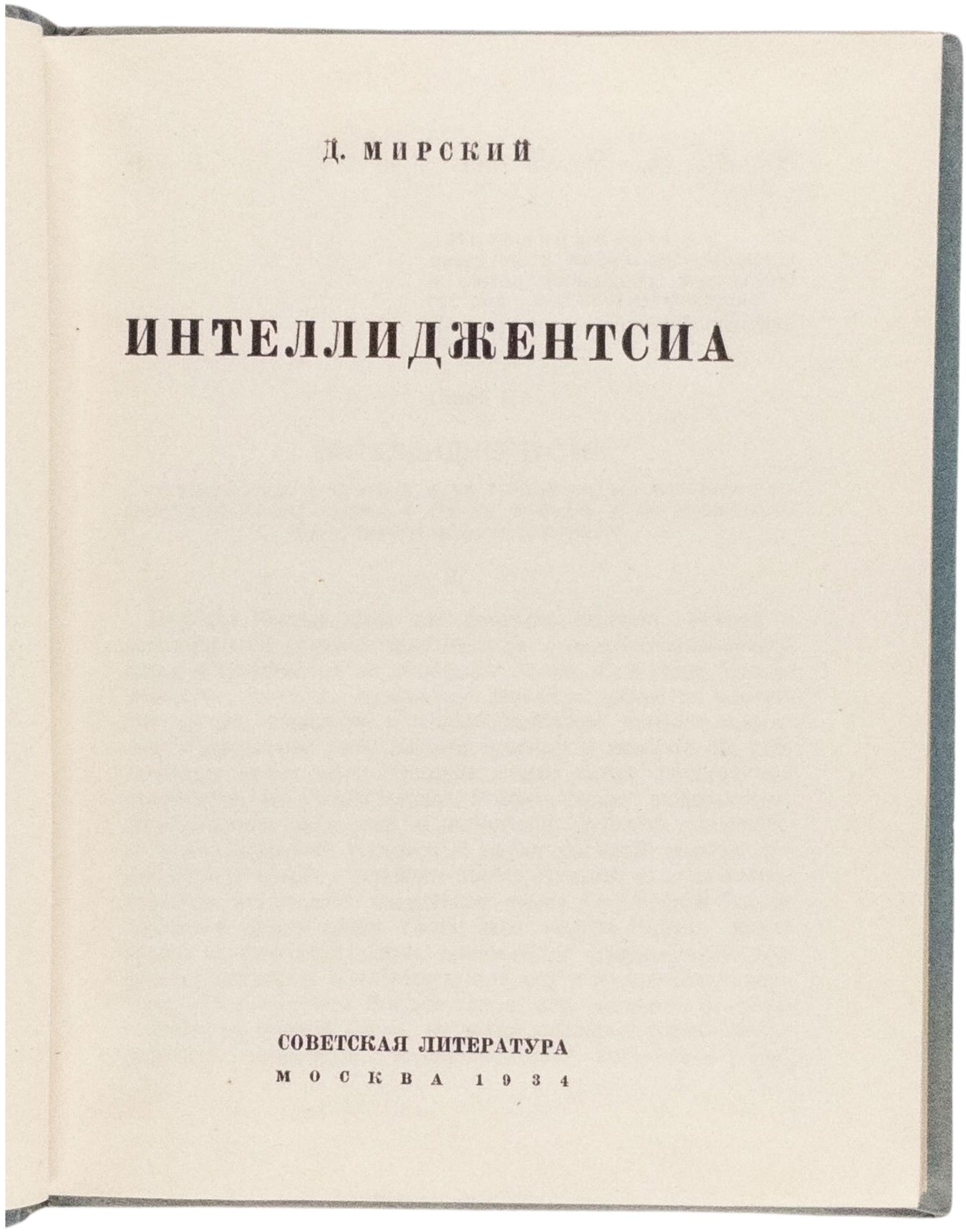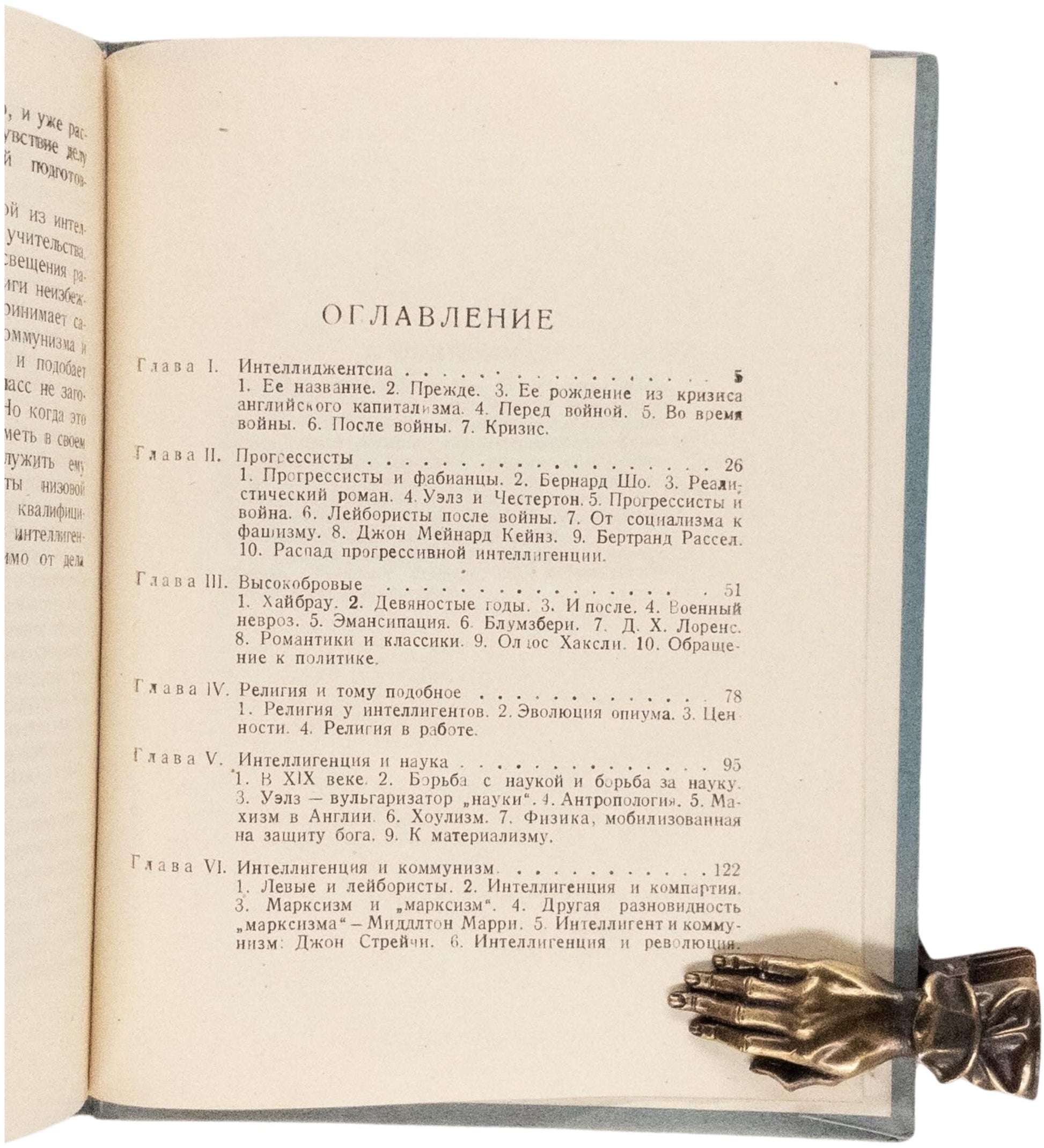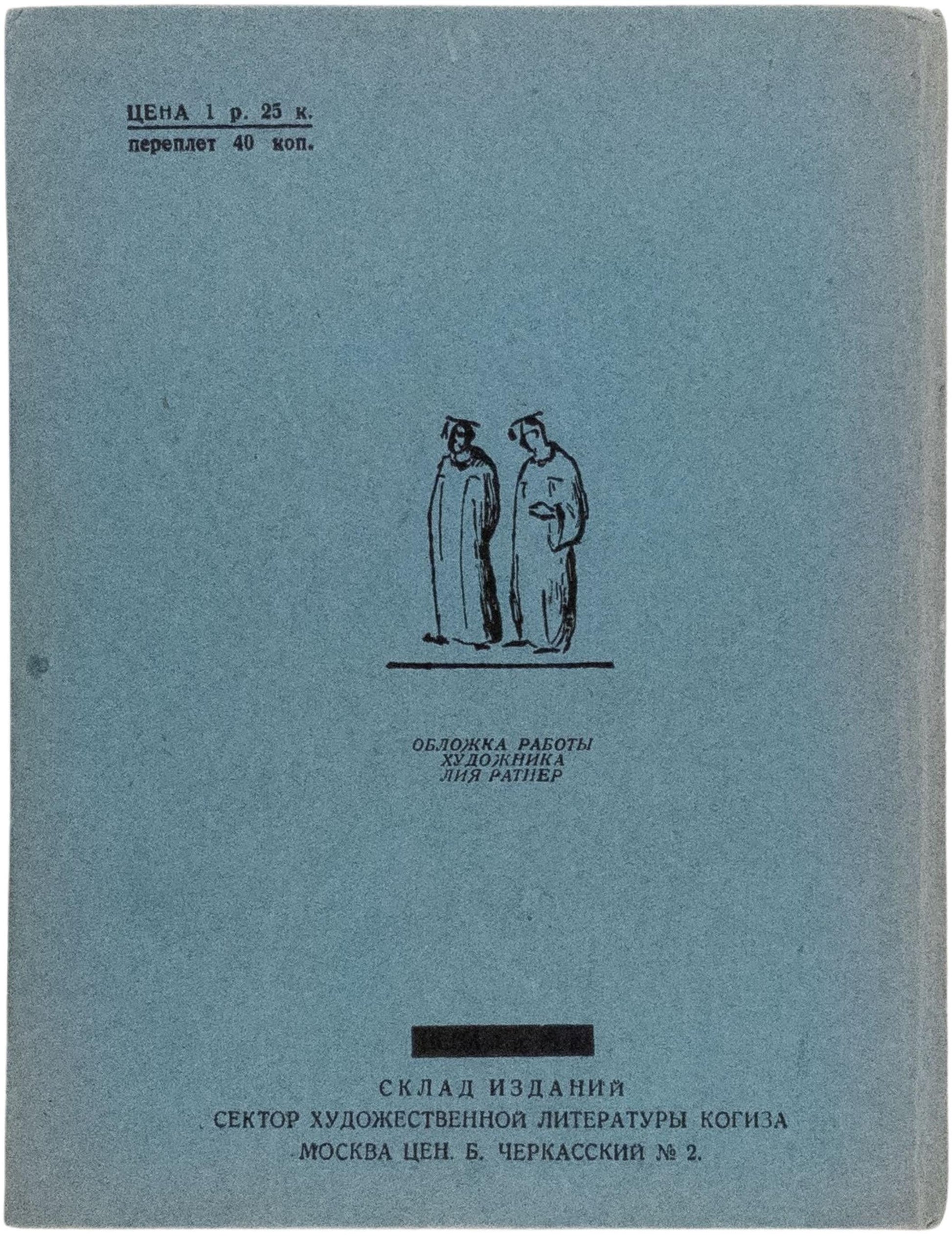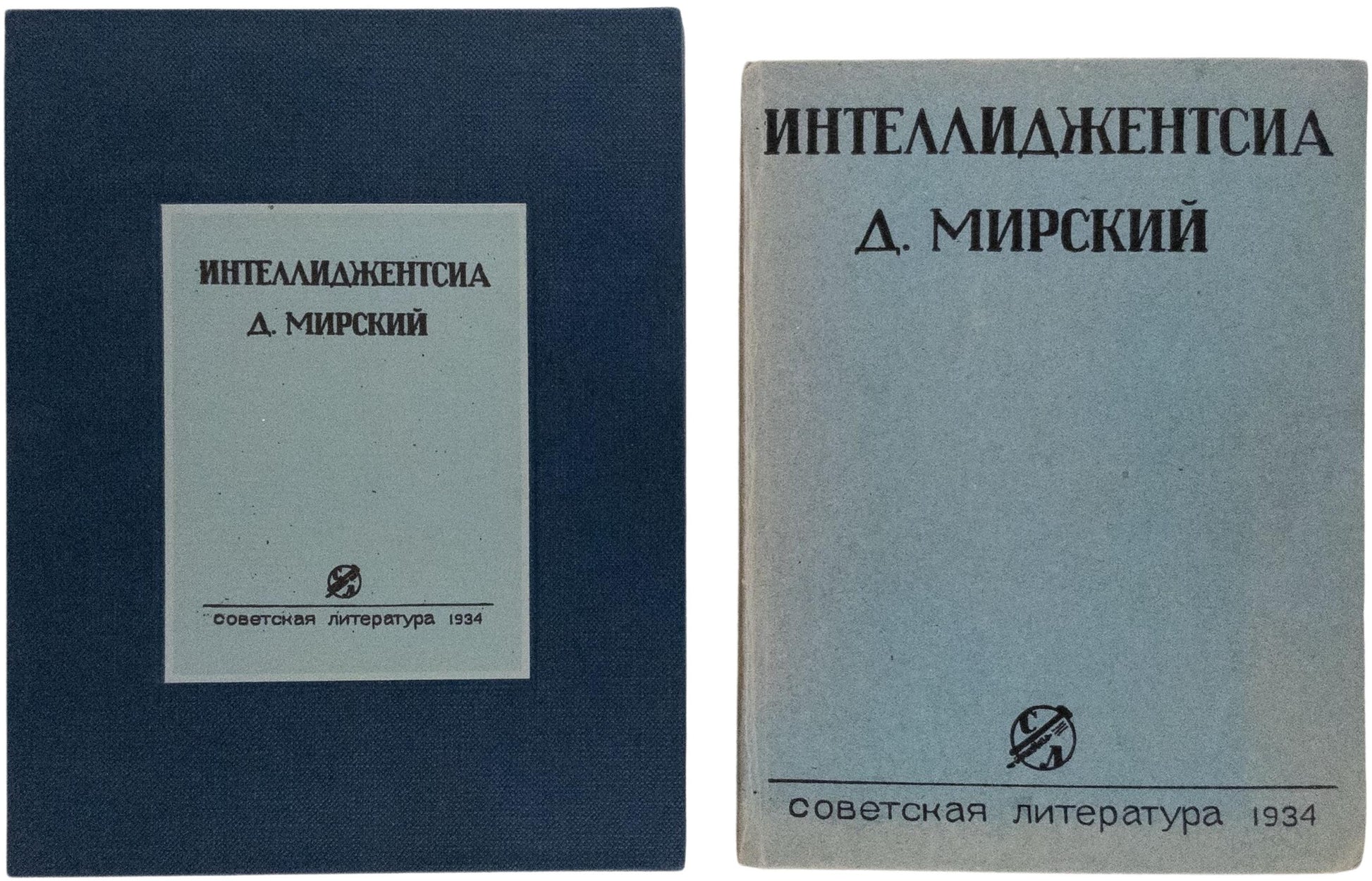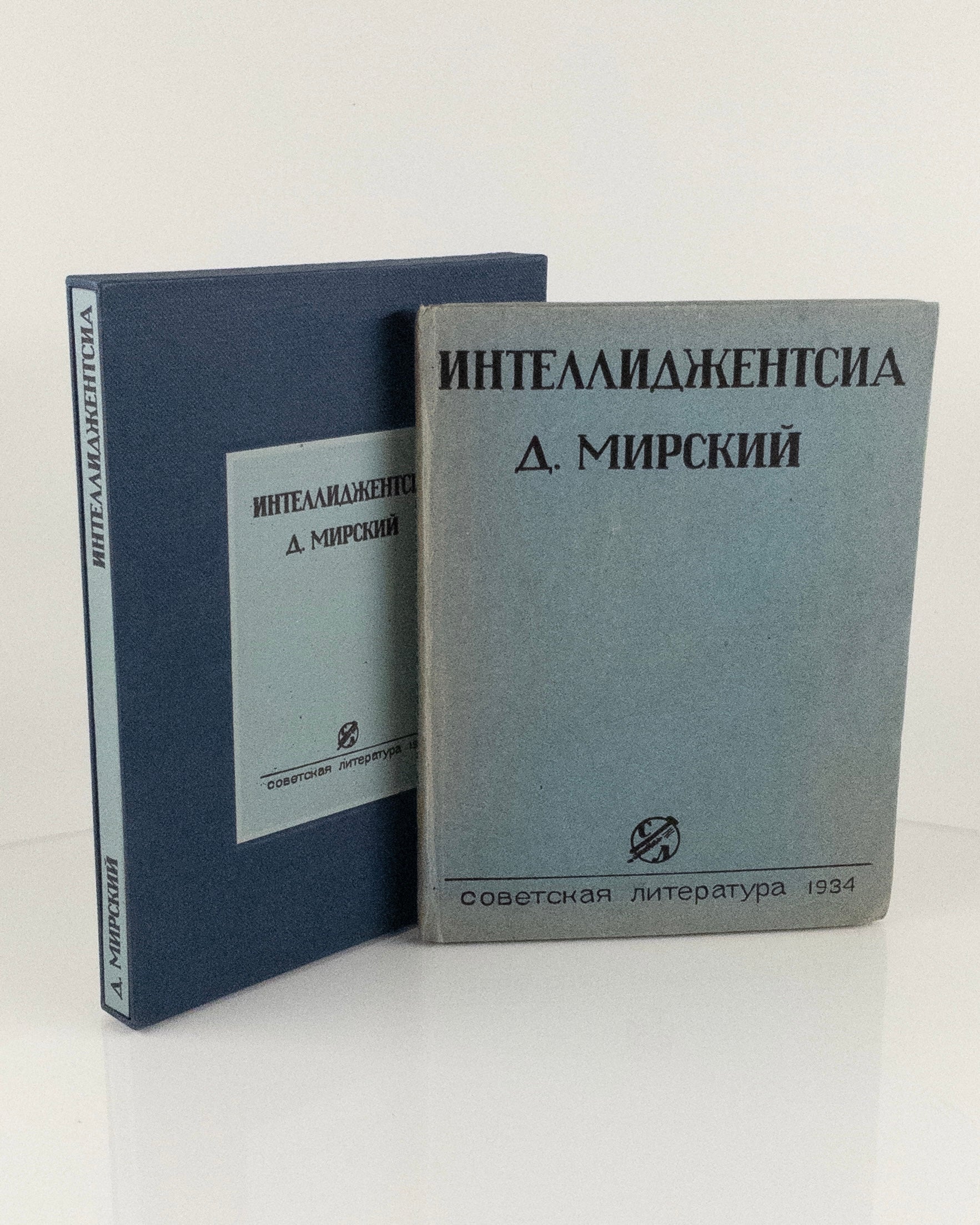Mirsky, D.
The Intelligentsia of Great Britain. The only edition.
The Intelligentsia of Great Britain. The only edition.
Couldn't load pickup availability
Mirsky, D. [The Intelligentsia of Great Britain]. Intellidzhentsia.
Book design by Liia Ratner.
Moskva, Sovetskaia literatura, 1934.
12mo, 137, [4] pp.
In original boards and moder slipcase.
Near very good condition, lightly sunned.
The only edition. One of 10 000 copies published.
Prince Dmitry Svyatopolk-Mirsky (1890–1939), a distinguished political and literary historian, offers in this book an in-depth analysis of the ideas and sentiments of the British intelligentsia during the first third of the 20th century. First of all, Mirsky explores the origins of the British intelligentsia, linking its emergence to the crises of capitalism after World War I. He delves into the progressive movements, discussing figures like George Bernard Shaw, H.G. Wells, G.K. Chesterton, John Maynard Keynes, and Bertrand Russell. The work also examines the 'highbrow'intellectuals, including members of the Bloomsbury Group, such as Aldous Huxley and Virginia Woolf, focusing on their responses to war, emancipation, and political shifts. In the end, Mirsky addresses the relationship between the intelligentsia and religion, the sciences, and communism, analyzing the complex interplay between intellectuals and these domains. Interestingly, almost all the figures Mirsky mentioned in this work and tried to introduce to Russian readers remained more or less unknown until the end of the Soviet era. By the way, it is known that Orwell termed the book a 'terribly malignant but very able book', seeing in it 'the archetype of Marxist literary criticism'.
From 1921 to 1932, Mirsky resided in London, lecturing on Russian literature at King's College London. During this period, he became an advocate for Russian modernism, participating in British literary salons and contributing to T. S. Eliot's magazine ‘Criterion’. He was notably influenced by Russian formalism. Vladimir Nabokov praised Mirsky's English-language work, ‘A History of Russian Literature’, describing it as ‘the best history of Russian literature in any language, including Russian’. In 1931, Mirsky joined the Communist Party of Great Britain. The following year, he returned to the USSR. On June 3, 1937, he was arrested under charges of espionage and subsequently died in a labor camp.
The book was originally published in Russian and later translated into English by Alec Brown, appearing under the title ‘The Intelligentsia of Great Britain’ in 1935.






